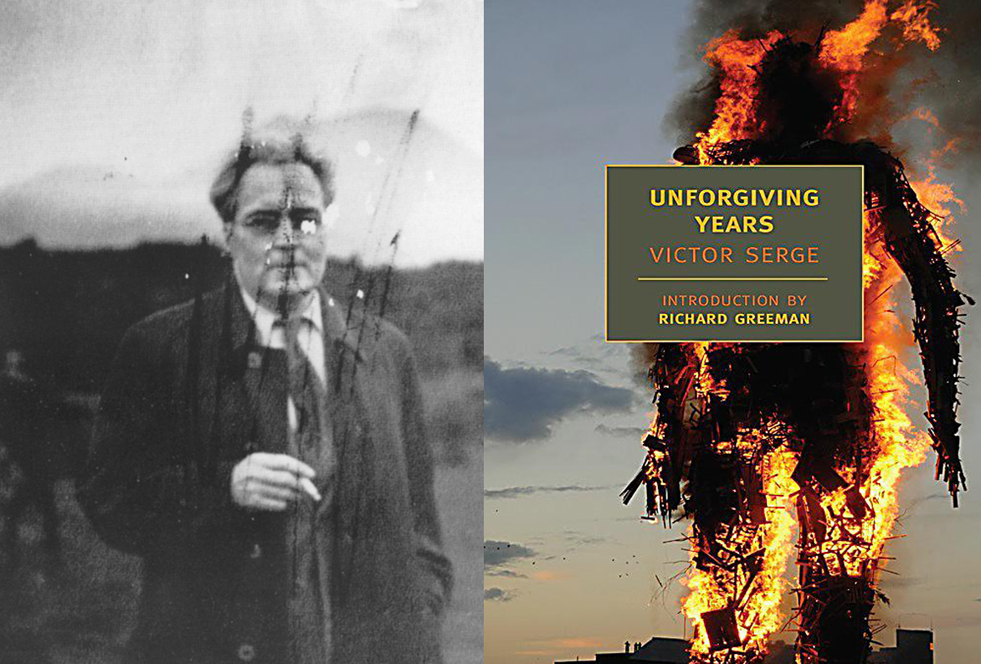
- This event has passed.
“A Screaming Comes Across The Sky…”

2 Novels of World War II: Unforgiving Years and Gravity’s Rainbow
The sessions title can apply to sections of both works
First 5 Thursdays
September 27 – October 25
Victor Serge’s Unforgiving Years
These five sessions will be conducted with the guidance of Richard Greeman
“ Unforgiving Years…has now at last been translated into electric English by the indefatigable Richard Greeman…It’s a seething, hallucinatory novel…” —Harper’s
“I know of no other writer with whom Serge can be very usefully compared. The essence of the man and his books is to be found in his attitude to the truth. There have of course been many scrupulously honest writers. But for Serge the value of the truth extended far beyond the simple (or complex) telling of it.” –John Berger
From Richard Greeman’s Introduction to Unforgiving Years: Unforgiving Years is divided into four sections, four symphonic “movements,” each of which evokes its distinctive time and place through its tone and atmosphere. The first movement, entitled “The Secret Agent,” expresses the sinister unreality of a Paris indifferent to the approach of war in a chill minor key. The second, “The Flame Beneath the Snow,” is discordant, heroic, and secret like one of Shostakovich’s wartime symphonies. It portrays a frozen, starving Leningrad during the “thousand days” of the Nazi siege. The third movement, “Brigitte, Lightning, Lilacs,” imagines the final days of Berlin under Allied bombardment in a mode of Wagnerian Gotterdammerung, while the final movement, “Journey’s End,” is a tragic requiem set in the stark, volcanic Mexican selva where death and life repeat their endless cycle.
Copyright © 1971 by The Victor Serge Foundation
The remaining 7 Thursdays
Thomas Pynchon’s Gravity’s Rainbow
Thursday, November 1 through Thursday, December 20 (no session on Thursday, November 22)
with The MEP Lit Group

Gravity’s Rainbow is a postmodern epic, a work as exhaustively significant to the second half of the twentieth century as Joyce’s Ulysses was to the first. Its sprawling, encyclopedic narrative and penetrating analysis of the impact of technology on society make it an intellectual tour de force.
“No, it is not unreadable. For most of its 700-plus pages it’s so crazily, scarily, sumptuously readable that you hate to put it aside even as the last paragraph thunders down on your head. The unsummarizable plot centers, to the extent that it centers at all, on Tyrone Slothrop, an American who comes to the attention of British intelligence during World War II when a map indicating the locales of his sexual encounters with London women shows that they correspond with the places struck by German V-2 missiles. Can his erections predict the random distribution of agents of death? From there we proceed into a massive continent-wide effort to construct a V-2, which is itself an occasion for a fantastic multitude of meditations upon the human need to build systems of intellectual order even as we use the same powers of intellect to hasten our destruction. (Did we mention that this is also a comedy, more or less?) Among American writers of the second half of the 20th century, Pynchon is the undisputed candidate for lasting literary greatness. This book is why.” —Richard Pourier
Two works that demand our attention. Registration is open now..
RICHARD GREEMAN has led discussions of Balzac, Stendahl, Peter Weiss and especially Victor Serge with The MEP and Brecht Forum since 2012. He currently convenes the group Another World Is Possible with Fred Murphy and others. He is a scholar of the life of Victor Serge and is the translator of much of Serge’s works.
The MEP LIT GROUP has been meeting discussing literature since the first days of The Marxist Education Project. The group has recently completeda second summer of readings of noir, considering works by Hammett, Chandler, Manchette, and others. Other studies have included novels relatedto World War I, the global depression of the 1930s and more.
